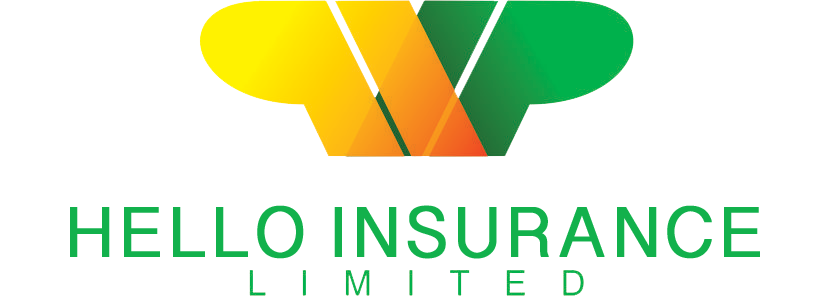Motor insurance is about the single highest premium earner for the insurance industry. Its viability is largely sustained by corporate fleet buyers. For private and other commercial vehicles, the minimum third party is preferred. Even then, this is observed in breach, as fake insurance is sold openly in many licensing offices. For good and the bad, motor insurance has advertised the business of insurance more than any other in the country. When enforced on a mass scale, it will raise more significantly both the level of awareness and benefits derivable from genuine insurance.
For instance, if 5million uninsured vehicles are captured at the minimum 3rd party rate of N5000, (though this rate will be increased this year), this translates to additional N25billion annually for the market. The industry can ride on the back of this to spread more awareness to the grassroots and to demonstrate presence where the action is; the Nigerian roads. Despite the potentials, it has also exposed the industry to wrong judgements and public odium due to the activity of quacks who sell fake certificates. So the notion out there is that insurance will always collect premium and not pay claims. Judging from statements of sources who spoke, these are certificates issued by some licensing officials without any recourse to any insurance company. In actual fact, the money is pocketed by these officials without any affiliation to any insurer.
Motor insurance
The most popular insurance known to many Nigerians is motor insurance. A 67 year old legislation (if one starts counting from 1950 commencement year) or as such 72 year-old antique of a 1945 promulgation. The main objectives of the Act have been lost in the so many years of weak and uncoordinated enforcement which has engendered a situation where majority who go for the minimum insurance for their vehicles believe, albeit falsely, that the premium is just money for insurance companies.
Vehicles that have any insurance at all are less than 15% of registered and licensed vehicles on our roads. Yet this piece of legislation similar to 3rd party acts operating in most countries should have been the easiest enforceable enactment. The reason for this lies, not only in the popularity automobile as the most common means of road transport, but the fact it is required that you must show evidence of insurance before your vehicle license is renewed. Right at the vehicle licensing office, which is partly regulated by ministry of transport and ministry of finance (as part of revenue service), your vehicle registration is declined because you do not have insurance which in the letter and spirit of the law precedes vehicle licensing.
Rising Claims on 3rd Party Motor insurance to drive awareness
However a new dawn of awareness is now upon the insurance industry as brokers, individuals, lawyers are increasingly making third party motor claims on insurers. It is now becoming clear that with the sheer number of yearly road accidents reported by National Bureau of Statistics. it is a matter of time before we start witnessing death claims arising from third party accidents. Worse still for insurers is that claims arising from loss of life in motor accidents is limitless. The law did not cap it and this provision can really drill into the existence of any insurer if not amended to put a limit.
Frank Egona, CEO of Grand Union Insurance Brokers makes it clear that his company will press any 3rd party motor claim to the satisfaction of his clients and therefore counseled insurers to be wary of the grabbing every third party available.
Jide Bodede, Insurance contributor also foresees more 3rd party motor claims with increased awareness. With enforcement comes more capturing of vehicles that would otherwise been ‘insured’ by operators in the fake market. However, he sees more failures of 3rd party claims because “the policyholders of 3rd party can hardly afford legal fees to press their case.” Still he was optimistic that insurers will see the need to set up 3rd party motor pool to protect their balance sheet from huge exposures in the future.
How 3rd Party insurance covers the man on the street
The main objective of the law and the ultimate beneficiary is the man on the street whom the law seeks to protect. It is not meant to help insurance companies make money. Indeed where high level of awareness exists (as foreseen by experts), insurers will apply stringent conditions on proposals for third party insurance because of their high level exposures to them; the law exposes insurers in so many ways like;
1) Loss of life
2) Loss of any member of the physical body (or what is generally called bodily injury)
3) Physical disability due to motor accident and hospital treatment
4) Damage to third party property
5) Theft
6) Accidental damage to vehicles themselves and so on
In other ways, in six plus ways the law protects Nigerians from the excesses and mistakes of drivers on Nigerian roads. The law ensures that no Nigerian is left without compensation from the activities of drivers of insured vehicles. In future editions, our team of legal experts will be examining the position of this Act in respect of victims of road accident caused by uninsured vehicles. The outcome of this finding will help Nigerians insist that any vehicle they are being conveyed in must show evidence of genuine insurance.
Who is the 3rd party?
There are two parties to an insurance contract, the insured and insurer. Aside these parties, there is also the right of third party arising from the activities of the insured parties. Third party is a person who is not part to insurance contract and who is specified or otherwise stated in the contract. In many countries across Africa where annual fatality and injury figures from road accidents are in thousands, most third parties are not aware of their legal rights and protection in an insurance policy. Insurers may also take advantage of this lack of awareness. Third party claims are scanty in our country and that may account for the push by insurers for a third party cover to boost premium base.
The agreement of indemnity in the insurance contract between insured and insurer is central to the insured’s legal claim and the rights of the third party. The promise by the insurer to be responsible on behalf of the insured is the core of the agreement. Despite of the essence of insurance most of insurers, especially in motor insurance tend to delay or deny indemnifying the third party after suffering injuries due to insured’s negligence, especially in Motor insurance policy
“All vehicles that use or is planned to be used on Nigeria roads must have insurance for the good of everybody,” states the law. Through future amendments, the law has brought into the net formerly exempted vehicles like government-owned vehicles. Insurance Act 2003 revoked the exclusion granted under the Motor Vehicle (Third Party) Act of 1950 (Cap 233 LFN 1990), for the military, police and other government-owned vehicles owing to the fact fund created for the purpose of compensating members of the public whose vehicles are damaged by government’s vehicles during accidents did not benefit anybody.
This revocation is government’s admission that it is only insurance that has the expertise to deal with risk transfer, risk protection and loss compensation.
Affirmations
Protection of innocent lives is very key to this enactment that another law, National Road Traffic Regulations of 2012, Part XI— which deals with operation of school buses states in section 113: “A school bus operator shall acquire a comprehensive insurance cover for the school bus and its occupants from an insurance company registered by National Insurance Commission.”
Safety is also important component of this regulation in that section 114 provides; “A school bus operator with up to five vehicles in his fleet shall establish a safety unit and appoint a qualified Safety Manager to head the unit. For the avoidance of doubt, this section affirms the position of 113 above because an insurer may rely on section 114 to repudiate a claim if the safety measures are not place.
Punishment
The punishment thereof is prescribed in 115. “Any person who contravenes any regulation under this part commits an offence and shall where no special provision is provided in this part, be liable on conviction to a fine of N2,000:00 or to a term of 6 months imprisonment or both.
The same regulation also aligns to the original Act and subsequent amendments and makes it an offence under section 139.—(1);
A person shall not drive any uninsured vehicle, trailer, stage carriage or omnibus on any public road, and any person who contravenes the provision of this regulation commits an offence and shall be liable on conviction to a fine of N2,000:00 or to a term of 6 months imprisonment or to both. (2) The insurance of vehicles as required under these Regulations shall be in accordance with the provisions of the Motor Vehicle (Third Party Insurance) Act, 2004 or comprehensive insurance cover. (3) It shall be an offence to drive any vehicle with forged or false insurance papers and a person in contravention of this provision commits an offence and shall be liable on conviction to a fine of N2,000:00 or to a term of 6 months imprisonment or to both.
Two thousand naira (N2000) only! This fine is not punitive enough to guarantee compliance and justify the exposure of our children by untrained and careless drivers on their way to and from school daily. To extract compliance, the punishment must be punitive to avoid evasion of the law or regulation.
Enforcement
“Where is your insurance’? This is the question often asked by policemen, road safety officials and sometimes vehicle inspection officers on road checks. This is one form of enforcement. But the most critical enforcement which may eventually compel compliance is the demand to show evidence of insurance on application for registration or licensing of a vehicle whether renewal or fresh one.
Where, under the provisions of any written law, any fee or tax is at any time payable or any permit or license is required in respect of a motor vehicle, the person paying such fee or tax or applying for such permit or licence shall at the time of such payment or application produce;
(a) his certificate of insurance or of security in respect of such motor vehicle; or
Other jurisdictions
Kenya
Under Kenya’s Insurance (motor vehicles third party risks) Act revised in 2012, Production of certificate of insurance on application for motor vehicle license is a precondition for renewal of license.
“A person who applies for a license or the renewal of a license in respect of a motor vehicle under the Traffic Act (Cap. 403) shall produce such evidence as may be prescribed that either—
(a) a certificate of insurance stating that on the date when the license comes into operation there will be in force the necessary policy of insurance or the necessary security in relation to the user of the vehicle by the applicant or by other persons on his order or with his permission.
This is perhaps the same is almost all jurisdictions across Africa and developed markets of Europe, it was only lately, as recent as 2013 that UK amended vehicle insurance as a pre-condition for motor licensing for defined purposes.
United Kingdom
It was not until 2013 that UK, as mature a market and well developed a country could be, amended parts of its Motor Vehicles (Third Party Risks) Regulations 1972 to remove the requirement to produce evidence of motor insurance or comparable surety when applying for a vehicle license. This was to comply with “ease of doing business” policy.
“Regulation 9 is subject to regulation 8 of the Motor Vehicles (International Motor Insurance Card) Regulations 1971 which allows holders of green cards (visitors to Great Britain) to provide a green card as proof of valid insurance as an alternative to the requirements of regulation 9. Both provisions are omitted because regular checks for valid motor insurance are made under the continuous insurance enforcement scheme”.
Until this amendment, UK system demands that at the point of renewal of license, applicants ought to show proof of insurance. It stated;
9.—(1) Any person applying for a vehicle licence under the Vehicles (Excise) Act 1971 shall, except as hereinafter provided and subject to the provisions of Regulation 8 of the Motor Vehicles (International Motor Insurance Card) Regulations 1971(1), produce to the Secretary of State either:—
(a) a certificate of insurance, certificate of security or duplicate copy of a certificate of security issued in accordance with these Regulations indicating that on the date when the license comes into operation there will be in force the necessary policy or the necessary security in relation to the user of the motor vehicle by the applicant or by other persons on his order or with his permission and such further evidence as may be necessary to establish that the certificate relates to such user.”
Africa’s largely defiant driving population must keep enforcement where it will be unavoidable by motorists; at the vehicle licensing offices.
In addition, businesses should as well show evidence of asset protection for assets declared in their books. The laws are there and government agencies are duty bound to enforce and this could be achieved with increased collaboration. Since vehicle owners and drivers can patronize fake insurances, technology can be deployed at the point of revenue capture in the licensing offices.
An assistant corps Marshall and zonal commander of Federal Road Safety Corps, Shehu Zaki said enforcement is critical to the effort of the organization to move to a new level of enhancing victims’ ability to get compensation from insurance. He believed an amendment to existing laws will make it easier for the agency to assist victims to access insurance since records of road accidents are kept. “While enforcing compliance to the insurance law, it is necessary to make it easier for victims to see the benefits of the insurance they purchased,” he reasoned.
Alliance for third party claims
Practically everybody wants some value for money spent on something either goods or services. Insurance as a service, demands that premium is paid for asset protection it offers. Premiums usually paid is far negligible compared to sums payable when loss occurs. But in the event that perhaps, one who has taken safety to heart does not make a claim over the years, he feels shortchanged. That does not indicate that insurance has not been paying claims.
The Nigerian insurance market once toyed with the idea of a pool for third party motor risks and discarded it perhaps for lack of profitability. Yet, there is need to engage with Nigerian motorists to demonstrate that indeed third party motor insurance has benefits to its buyers. There are two suggestions that is working well in countries where it is implemented.
1) Formation of 3rd party motor risk pool
People within the insurance industry had some years back canvassed for a motor risk pool which ordinarily should take off with a grant from the industry accident fund originally warehoused by NAICOM, the industry regulator. This motor risk pool for third-party motor insurance will be used as originally designed to compensate victims of both hit and run drivers and other innocent third parties for likely losses and burden of medical cost incurred by the individual as a result of accident.
Continuous and equitable dispensation of this fund under a strong trust will place the industry on sure footing where people begin to observe the gains and benefits of insurance of vehicles. The formation of third-party motor insurance pool is an important first step towards addressing the issues of innocent road accident victims. The pool will also help spread risk according to portfolio size within an environment such as ours where accidents are frequent and claims may be severe.
2) Portfolio separation
As yet, there may be no regulatory requirement for motor underwriters to separate their motor portfolios into third party and comprehensive so as to know each class premium position and claims. If there is regulatory endorsement, third party motor premiums should be pooled and losses in the third-party motor portfolio are then shared among all general insurance players in proportion to their market share. Loss sharing should be based on their market share, irrespective of the size of their motor insurance portfolio as obtains in India market.
Free pricing vs regulated regime
Although insurers do not have any evidence to show claims experience on third party motor claims, yet they appear to be pushing for a new price regime of N20, 000 (twenty thousand) per any third party cover. This will automatically push up price for articulated vehicles. With increased enlightenment, there will be increased pressure on insurers to honor third party obligations. Specialized lawyers will also take to advocacy for the disadvantaged third party claimants. It is therefore in the interest of all parties in the insurance business including legislators to consider free pricing regime for some category of vehicles to be insured. This move will solve two problems viz;
1) Unending request to review upwards minimum premium payable on third party. Every vehicle owner will simply buy what he needs to cover with minimum third party priced according to industry criteria or each individual company’s portfolio analysis. Premiums should therefore be brought into the free pricing regime. This will allow insurers to charge premiums as per the risk profile of the vehicle. Reward system may then be established as a CSR to promote safe driving habits among drivers. This will be better than raising the prices every year and will also end the cross subsidy prevailing in the present scenario.
2) Third party claims repudiation or rejection by insurers will no longer be an issue based on price but on the insurer’s perception if a claim is genuine or not.
Apart from the capping of compensation, another burning issue is the time limit for filing third-party claims. In this pool an individual should be allowed to file a claim respective of the occurrence of the accident or loss. Within a reasonable time. The longer the time taken to file a claim, the greater the chances of fraud. There should be a time limit for filing a claim. It should be restricted to a certain period of time if the bodily injury is not too serious after the accident. I think six to one year would be better. Generally the time for indemnity should extend depends on the nature of individual risk in terms of severity.
Fair claims settlement practice and regulations
There should be a fair claims settlement practice and regulations. These regulations will guide the insurers on how to handle Third party and give the Third party an alternative way of dealing with the claims if insured delay or ignore to notify the insurer as well as insurer’s denial.
The regulations should prohibit unfair settlement of the claims and to make it part of the general business practice. Claims regulations should govern the insurers to disclose to Third party the benefit, coverage or any other additional benefit which may be provided by the policy when presenting claim. This in place in some jurisdictions. It is easier when brokers serve as intermediaries for insurance transaction.
Filing simpler motor insurance claims
Police report and other documents are no longer required for simple motor claims and that may have improved customer satisfaction but in some cases fraudulent claims are being recorded. But for ease of claims, section 71(1) of the Insurance Act 2003 states;
“Where any claim referred to in sections 69 or 70 of this Act arises out of an accident involving one or more vehicles, it shall not be necessary, if there is sufficient evidence of proof of loss or damage, for any claimant to report and deliver police report to the insurer; but where death of or serious bodily injury to a person is involved in any such accident, the provisions of this section shall not apply.”
However, there are exclusions to this provision in case of car theft as well as fatal accidents.
Section 71(3) of the Act states that, “Nothing in this section shall be construed as implying that a police report is not required in the case of claims arising from car theft.”
Conclusion
Where an accident involves material damage alone it shall not be necessary for the insured to report the accident to the police and obtain a police report provided there is sufficient evidence of proof of the damage. Sufficient proof of the accident can be satisfied by the statement of eye witnesses or by photographs of the accident. However, where the accident involves death or bodily injury to any person the accident must be reported to the police and the insured must obtain a police report. Also, where a vehicle is stolen the loss must be reported and the insured must obtain a police report. Failure to obtain a police report in such cases will adversely affect the claims of the insured.






